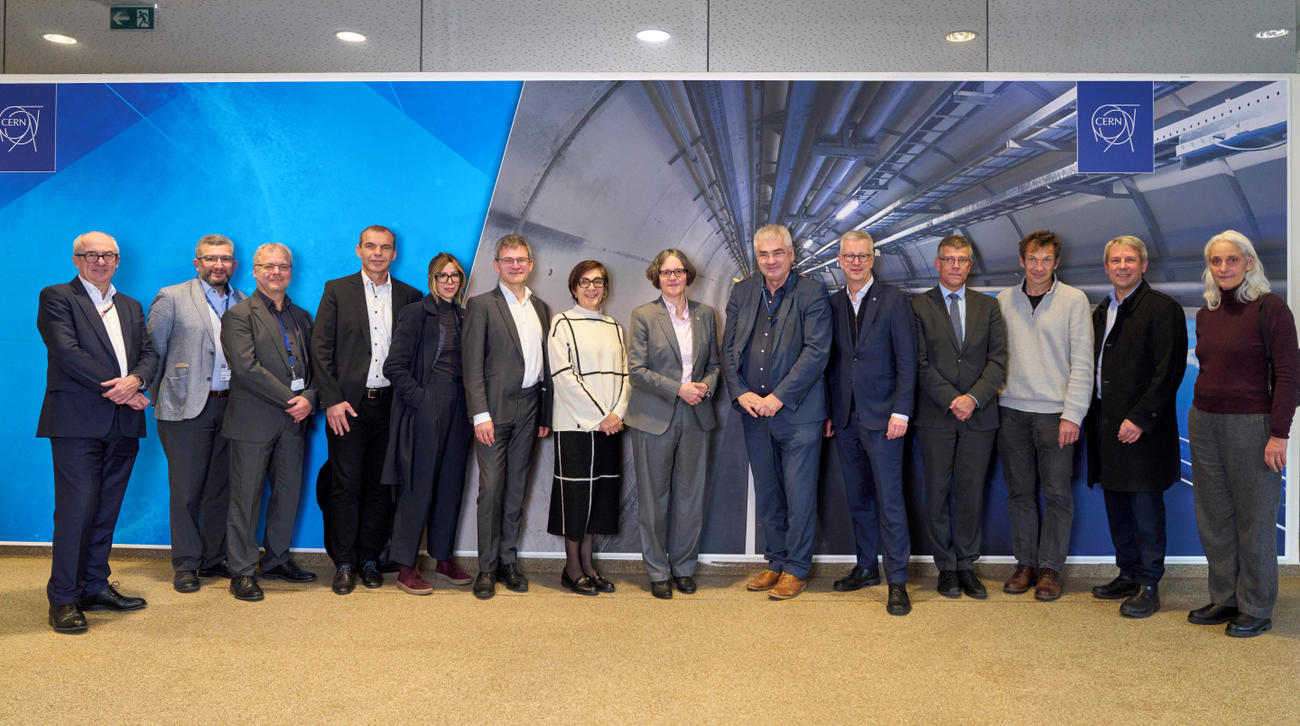BUA delegation visits CERN: New impetus for Berlin scientific cooperation
On November 14, 2025, members of the Berlin University Alliance (BUA) visited the European research center CERN near Geneva—the world's largest laboratory for particle physics—together with Prof. Dirk Oberschmidt (Technische Universität Berlin) and Prof. Heiko Lacker (Humboldt Universität zu Berlin).
News from Nov 20, 2025
The aim of the visit, organized by Dirk Oberschmidt, Heiko Lacker, and Dr. Sascha Schmeling from CERN, was to explore potential areas of cooperation in technology and engineering and to highlight the wide range of opportunities that CERN offers beyond particle physics. Research Director Prof. Dr. Joachim Mnich welcomed the delegation and presented the international infrastructure, which benefits around 14,000 researchers.
Among other things, the group visited the ATLAS experiment, the magnet development hall, and the MEDICIS facility for the production of medical isotopes. This highlighted the importance of CERN as a high-tech laboratory and driver of innovation – not only in physics, but also in medicine and technology. A visit to the historic synchrocyclotron also brought into focus the founding idea of CERN as a European peace project.
Prof. Dr. Julia von Blumenthal, President of Humboldt-Universität zu Berlin and member of the Board of Directors of Berlin University Alliance, emphasizes the strategic importance of the collaboration: "The cooperation between the Berlin University Alliance and CERN strengthens our international network and creates space for outstanding research. Close exchange with a globally unique research infrastructure generates new impetus that enhances scientific quality and drives innovation. This partnership demonstrates how important global cooperation is for the future of our scientific systems."
Prof. Dr. Günter M. Ziegler, spokesperson of Berlin University Alliance and president of Freie Universität Berlin, notes: “The diversity of areas and perspectives for cooperation with the world-class research center CERN – from hardcore experimental physics to open science – underscores the strength of Berlin's alliance of excellence. Our scientists make Berlin visible worldwide as a reliable research partner. My thanks go to the teams in Berlin and Geneva who make this cooperation possible.”
Finally, the delegation discussed CERN's diverse training and research programs with students and doctoral candidates, including the Summer Student and TECH Student programs. The testimonials underscored the wide range of possible collaborations—from technical computer science to library science—and the inspiring effect of the international research environment.

